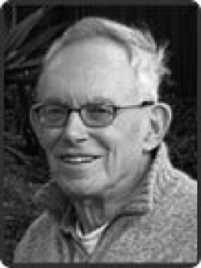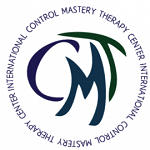 Joseph Weiss, MD, a San Francisco psychoanalyst and pioneering researcher on the psychotherapeutic process, died at his home in San Francisco on November 7th 2004 from complications of lung cancer. He was 80. Joseph Weiss was born in Cincinnati, Ohio on March 3, 1924. He received a B.S. in Mathematics from Harvard College in 1945 and graduated from the University of Cincinnati’s medical school in 1947.
Joseph Weiss, MD, a San Francisco psychoanalyst and pioneering researcher on the psychotherapeutic process, died at his home in San Francisco on November 7th 2004 from complications of lung cancer. He was 80. Joseph Weiss was born in Cincinnati, Ohio on March 3, 1924. He received a B.S. in Mathematics from Harvard College in 1945 and graduated from the University of Cincinnati’s medical school in 1947.
His obituary can be found here: http://www.nytimes.com/2004/11/18/science/joseph-weiss-80-originator-of-theory-on-facing-trauma-dies.html
Joseph Weiss, an original, bold, and brilliant psychoanalyst and researcher, came out to California in 1957 to receive analytic training, and in 1962 became the youngest training analyst in history of the San Francisco Psychoanalytic Institute. He met his beloved wife, Dr. Estelle Weiss, while working on a research project through the California Department of Mental Health. Estelle Miller Rogers Weiss was born in Galveston, Texas in 1921 where her parents ran an oyster farm and seafood restaurant. She graduated from the University of Texas, Austin for her undergraduate degree and attended medical school at UT in Gavelston. She then studied pediatrics and psychiatry in St. Louis and San Francisco where she met Joe. In addition to being a psychoanalyst, Estelle was an artist, poet, a William Blake scholar and naturalist. She had a unique command and love of words, and a very dry, wicked original sense of humor. Estelle worked closely and acted as a sounding board with her husband Joe in developing the Control Mastery theory for many years in their San Francisco home. She read and edited every word he wrote, and was famous for hosting endless tennis lunches and SFPRG parties! Estelle died in on January 15th, 2015. They are survived by three children–John, a neurologist at UC Irvine; Martha, a botanist at John Hopkins; and Elizabeth, a writer in Berkeley—and three grandchildren.
Weiss published his first paper at the age of 24 on Art and Beauty and went on to have a prolific career as a pioneering psychoanalytic researcher and theorist. In addition to his academic interests, he was an accomplished painter and cartoonist. He began to develop his theory of mind and the therapeutic process by carefully studying the process notes of psychoanalytic treatments he conducted. He devoted himself to developing a scientific approach for treating of psychological problems. In the first publication of his clinical thinking in 1952, Weiss examined the seminal question of why people cry at happy endings. Noticing that his mother cried at the happy endings of movies, he developed the idea that people warded off painful feelings until it was safe to face them, – e.g., after the lovers who had been separated were reunited. This, his first clinical paper, “Crying at the Happy Ending”, published in 1952, contained essential ideas about safety that were central to the development of his theory over the subsequent decades.
In 1967, he and his long time collaborator Dr. Harold Sampson formed the Mt. Zion Psychotherapy Research Group (later known as the San Francisco Psychotherapy Training Center and Clinic). Together they devised innovative research paradigms for empirically studying how psychoanalysis and psychotherapy work. In 1986, Weiss, Sampson, and Mt. Zion Psychotherapy Research Group published a groundbreaking book called The Psychoanalytic Process: Theory, Clinical Observation, & Empirical Research. Weiss’s theory is known as Control-Mastery Theory because on the emphasis it places on adaptive unconscious mental processes and the motivation towards mastery. In 1993 Weiss published the highly acclaimed How Psychotherapy Works, which has been translated in many languages and is one of the best selling texts available on psychotherapy.
Weiss trained and influenced hundreds of mental health professionals in the Bay Area. Until the time of his final illness, he maintained an active clinical practice, provided consultation to numerous therapists, taught a weekly case conference, and conducted an ongoing seminar on psychotherapy research. An extremely popular supervisor, he encouraged students to think hard about how to best help their patients and was always willing to question the tried and true. His students continue to teach his ideas and to conduct research on the principles of effective psychotherapy.
His innovative ideas about the drive towards mastery, the patient’s adaptive goals and plans, the development of unconscious pathogenic beliefs as a result of traumatic experiences, and the process of testing as a way to disconfirm pathogenic beliefs, are important contributions to the science of psychotherapy. Weiss was beloved by his family, friends, colleagues, students, and patients because he always extended a hand of friendship and had the gift of knowing how to help others. In addition he had a wonderful sense of humor. His work will continue to significantly influence how psychotherapy is practiced.
